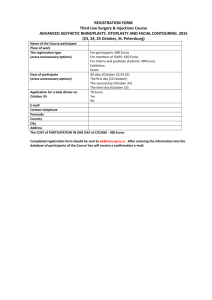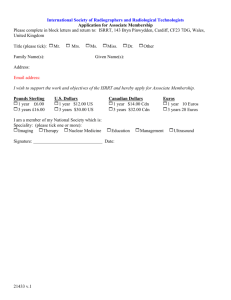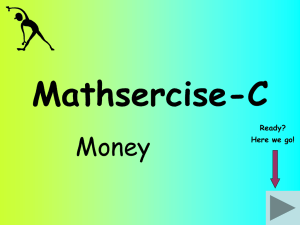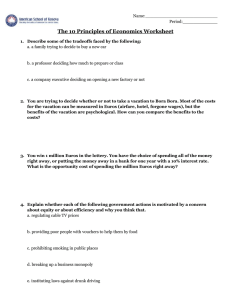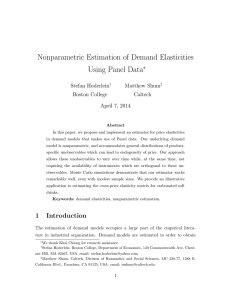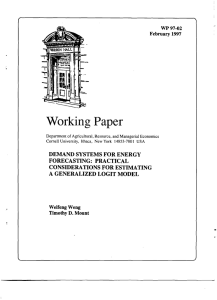Introduction to Microeconomics- L1 EG – University of Orleans
advertisement
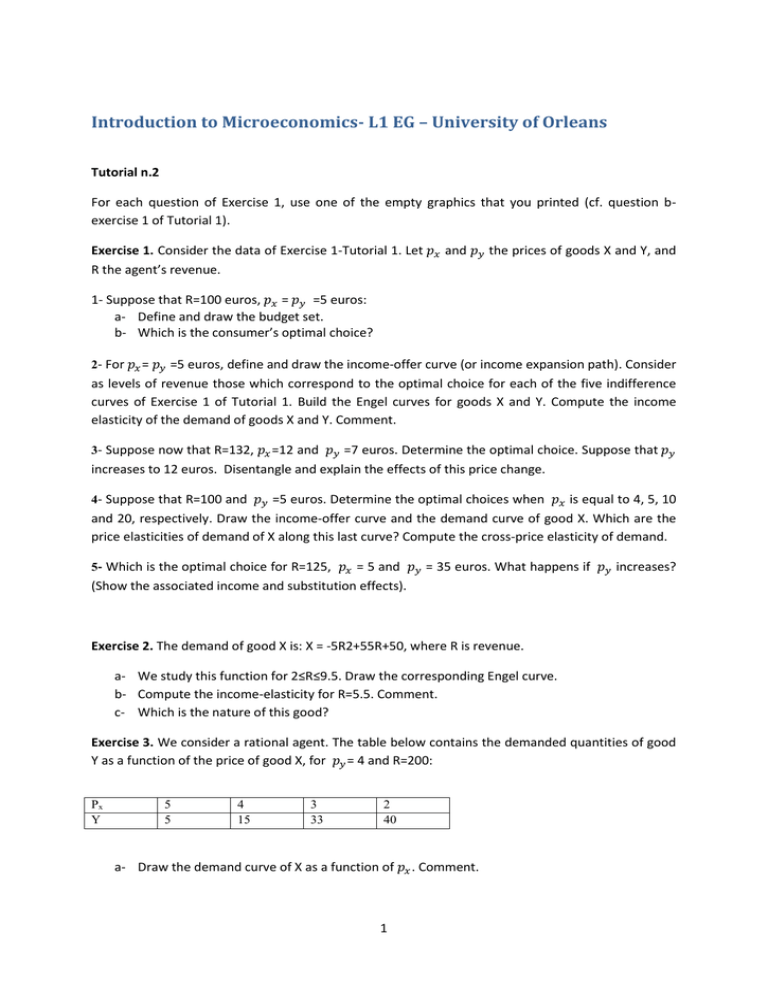
Introduction to Microeconomics- L1 EG – University of Orleans Tutorial n.2 For each question of Exercise 1, use one of the empty graphics that you printed (cf. question bexercise 1 of Tutorial 1). Exercise 1. Consider the data of Exercise 1-Tutorial 1. Let 𝑝𝑥 and 𝑝𝑦 the prices of goods X and Y, and R the agent’s revenue. 1- Suppose that R=100 euros, 𝑝𝑥 = 𝑝𝑦 =5 euros: a- Define and draw the budget set. b- Which is the consumer’s optimal choice? 2- For 𝑝𝑥 = 𝑝𝑦 =5 euros, define and draw the income-offer curve (or income expansion path). Consider as levels of revenue those which correspond to the optimal choice for each of the five indifference curves of Exercise 1 of Tutorial 1. Build the Engel curves for goods X and Y. Compute the income elasticity of the demand of goods X and Y. Comment. 3- Suppose now that R=132, 𝑝𝑥 =12 and 𝑝𝑦 =7 euros. Determine the optimal choice. Suppose that 𝑝𝑦 increases to 12 euros. Disentangle and explain the effects of this price change. 4- Suppose that R=100 and 𝑝𝑦 =5 euros. Determine the optimal choices when 𝑝𝑥 is equal to 4, 5, 10 and 20, respectively. Draw the income-offer curve and the demand curve of good X. Which are the price elasticities of demand of X along this last curve? Compute the cross-price elasticity of demand. 5- Which is the optimal choice for R=125, 𝑝𝑥 = 5 and 𝑝𝑦 = 35 euros. What happens if 𝑝𝑦 increases? (Show the associated income and substitution effects). Exercise 2. The demand of good X is: X = -5R2+55R+50, where R is revenue. a- We study this function for 2≤R≤9.5. Draw the corresponding Engel curve. b- Compute the income-elasticity for R=5.5. Comment. c- Which is the nature of this good? Exercise 3. We consider a rational agent. The table below contains the demanded quantities of good Y as a function of the price of good X, for 𝑝𝑦 = 4 and R=200: Px Y 5 5 4 15 3 33 2 40 a- Draw the demand curve of X as a function of 𝑝𝑥 . Comment. 1 b- Suppose that the revenue increases at 300. Then the demand of good Y as a function of 𝑝𝑥 becomes (𝑝𝑦 = 4): Px Y 5 37.5 4 47 3 61.5 2 67.5 How does the demand of X vary with consumer’s revenue? What can you conclude? Exercise 4. Consider the following utility function: 𝑈(𝑥, 𝑦) = 𝑥 𝑎 𝑦 𝑏 , under the usual budget constraint. 1- Give the expression of the demand functions of X and Y. 2- Study the shape of these functions (price elasticities, cross-price elasticities and income elasticities). 2
